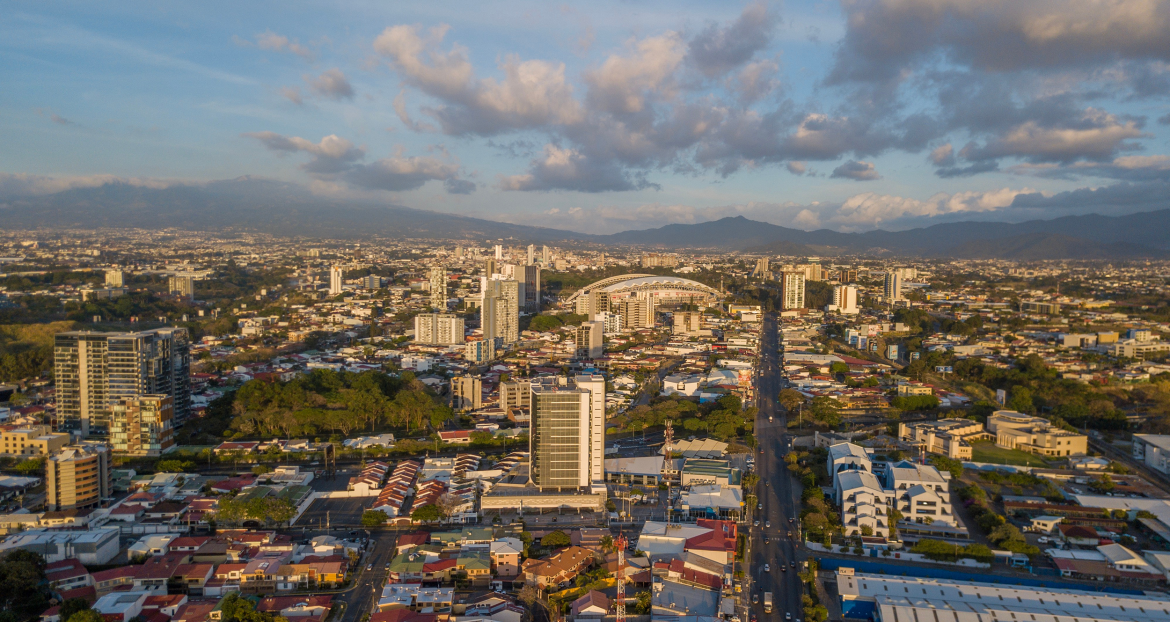Costa Rica’s economy continues to experience strong post-pandemic growth, bolstered by fiscal discipline, export expansion, and private consumption. A new OECD Economic Survey highlights the country’s positive trajectory but stresses the need for continued policy reforms to sustain long-term growth, improve living standards, and maintain fiscal stability.
Economic Growth Outlook: Positive Projections for 2025 and 2026
According to the OECD report, Costa Rica’s real GDP is projected to grow by 3.8% in both 2025 and 2026. Key drivers of economic growth include:
- Expanding exports—particularly in medical devices and business services
- Strong private consumption, supported by job creation and low inflation
- Moderate inflation, forecasted to reach 2.4% in 2024 and 3.2% in 2025
This steady economic growth underscores Costa Rica’s resilience and adaptability, particularly in the face of global economic uncertainties.
Fiscal Discipline: A Key to Sustainable Growth
Costa Rica’s public debt-to-GDP ratio is declining, but ensuring fiscal sustainability remains critical. The OECD recommends the following measures to maintain progress:
- Adhering to the fiscal rule to prevent excessive government spending
- Enhancing public spending efficiency through spending reviews
- Expanding tax bases to optimize revenue collection
By implementing these fiscal discipline measures, Costa Rica can strengthen its economic foundation while ensuring long-term stability.
Export and Trade: Capitalizing on Global Supply Chain Shifts
Costa Rica’s commitment to open trade has fueled export diversification and economic expansion. Today, medical devices and business services have surpassed agriculture and tourism as the country’s leading exports.
The OECD emphasizes that global efforts to diversify supply chains present a significant opportunity for Costa Rica. However, to fully leverage these changes, the country must:
- Expand workforce participation in export-driven sectors
- Encourage small and medium enterprises (SMEs) to integrate into global trade
- Invest in logistics and infrastructure to support international trade flows
Skills Shortages: A Rising Threat to Growth
Costa Rica’s well-educated workforce has been a major factor in attracting foreign direct investment (FDI). However, rising skills shortages now threaten the country’s competitiveness.
To address this challenge, the OECD calls for urgent education and labor market reforms, including:
- Accelerating vocational education improvements to develop technical skills
- Increasing graduates in STEM fields (Science, Technology, Engineering, Mathematics)
- Aligning university programs with labor market needs to reduce skill mismatches
“Costa Rica should address skill mismatches, increase female labor participation, and reduce informality to boost medium-term growth,” stated OECD Secretary-General Mathias Cormann during the report’s presentation in San José.
Labor Market and Informality: Addressing Structural Challenges
One of Costa Rica’s persistent economic hurdles is high informality, which restricts tax revenues and limits worker protections. To tackle this issue, the OECD suggests:
- Expanding access to affordable early childhood education to support female labor force participation
- Lowering the cost of formal employment to incentivize businesses to comply
- Reducing bureaucratic and economic barriers to formal business registration
By addressing these structural labor challenges, Costa Rica can unlock higher productivity and inclusive economic growth.
Infrastructure Bottlenecks: A Barrier to Trade and Growth
Despite economic progress, Costa Rica’s inadequate infrastructure remains a major bottleneck, increasing trade costs and limiting regional economic participation. Key challenges include:
- Poor-quality roads, affecting transportation efficiency
- Overcrowded ports, slowing down export processes
To close the infrastructure gap, the OECD recommends:
- Strengthening feasibility assessments for transport projects
- Developing clear implementation plans with defined timelines and milestones
- Maximizing public-private partnerships to finance improvements
These reforms are crucial to enhancing Costa Rica’s trade competitiveness and boosting economic participation in remote areas.
Energy and Decarbonization: Expanding Renewable Potential
Costa Rica remains a global leader in renewable energy, with nearly 100% of its electricity coming from clean sources—primarily hydropower (70%). However, climate change is reducing rainfall, posing a threat to hydroelectric generation.
Simultaneously, the country’s electrification of transportation and rising FDI-driven energy demand require a more diversified energy supply. The OECD urges Costa Rica to:
- Invest in wind, solar, and geothermal energy to reduce reliance on hydropower
- Attract private investment into renewable energy projects
- Implement regulatory reforms to streamline energy sector development
By expanding renewable energy production, Costa Rica can maintain its decarbonization leadership while meeting rising energy demands.
Conclusion: Policy Reforms Are Key to Sustained Growth
Costa Rica’s economic performance post-pandemic has been strong, but sustaining this growth requires continued reforms in fiscal policy, education, labor markets, infrastructure, and energy.
By implementing the OECD’s recommendations, Costa Rica can:
✅ Ensure long-term fiscal sustainability
✅ Strengthen its labor market and workforce competitiveness
✅ Expand trade benefits to more workers, firms, and regions
✅ Improve infrastructure and energy security
As global supply chains evolve and economic opportunities shift, Costa Rica has a unique chance to solidify its position as a regional leader—but only if it continues pushing forward with structural reforms.

